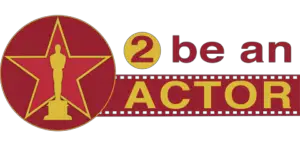
Are Dialects And Accents The Same Thing?
The quick answer is No, there is a misconception between dialects and accents cause accent is one part of a dialect. Dialects also refer to the way a person speaks his own mother tongue while accents refer to how a person speaks another language.
To understand further the difference between a dialect and an accent I can say that:
Accent refers to how you pronounce words while a dialect includes the grammar, pitch, pronunciation, and vocabulary that people use within a geographical area or group.
7 Things An Actor Should Not Do When Learning A Dialect
Before proceeding into how to train yourself to work on different dialects, as an actor you should remember the not to do points below:
#1: Do Not Forget The Character
Since you have a character role in an act as an actor, then you need to firstly focus on the character itself in the story of the act and how you can get the best out of it in terms of the proper dialect, for example, you need to think about the character’s age, class, his/her outlook on life, the character’s upbringing .. etc and how these factors influence his/her speech. When you study the character deeply you will be able to deliver a more powerful and convincing dialect performance.
#2: Do Not Listen To Mild Dialects
Some actors are being advised to listen and practice mild dialect samples in order to make it easier for them to master but the reality it is not, if you as an actor want to master a dialect you should listen to an actual version sample of the accent or practice with native people the accent, putting in mind that mild version of a dialect is based on people who live a lot of time elsewhere.
#3: Do Not Focus Only On Accent
If you want to master a dialect you need to go slang, to do so you should not focus on the accent but on learning the dialect in detail, for example how the dialect is used in everyday language, or what vocabulary native people are using in certain circumstances or grammar they use… etc
#4: Do Not Forget To Work On Your Voice
You need to increase your voice suppleness cause practicing a new dialect could quickly tire your voice, so be sure to practice how to control your voice for better dialect learning results and performance.
#5: Do Not Work Only On Pronunciation
Learning a new dialect as an actor is not only about the accent pronunciation, it is also more about the music of the accent, the tempo of the said sentences, and how you physically react to and/or perform them, for example, if you are British and trying to learn the American dialect you should practice how American people say the words with body language and face expressions as well as in terms of musical pronunciation, and should not say the words in the American accent but with stuffy Edwardian aristocrats way.
#6: Do Not Lose Your Enthusiasm
And remember to master a new dialect or to be good at it is to sustain your learning willingness and enthusiasm.
#7: Do Not Get Overconfident
Overconfidence is what you mostly need to get rid of and be careful of, it is so easy for any actor either a professional actor or an amateur one to be overconfident about mastering a new dialect for a role, there are many examples of past professional actors in movies that lack dialect perfection which reflected negatively in their non-convincing acting to the audience. Overconfidence breaks any success, so remember that you will always have plenty that you do not know.
How To Learn A New Dialect?
There are two steps to follow that you can learn a new dialect I will present both of them and it’s your choice to see which one is easier for you:
STEP 1 – Accustom Yourself With The New Dialect
In step 1, you need to use one of the methods below in order to reach a good level of learning the new dialect.
[METHOD 1] – Listen To Native Speakers
This method works very well if you have a supportive native speaker friend who’s willing to sit with you and spend time enhancing your dialect, correcting your own pronunciations..etc but to start with your friend you could do the below:
- Give your friend a script you are reading or practicing and ask him to read it in front of you.
- Stop him on certain words you found their pronunciation interesting or hard to say.
- Ask him to repeat reading that particular word, then repeat it after him.
- Let him judge your pronunciation.
To make this method easier if your native speaker friend is overseas or far away from you:
- Contact your native speaker friend via the Whatsup app or any chat facility and send him the script.
- Ask him to record his voice saying the script.
- Listen to his native speaking and try to comply and repeat.
- Send him a voice message by recording your voice in the same script.
- Ask him for his feedback and any corrections required.
The success of using this method by listening to native speakers and repeating after them depends on your ability and how you can capture the accent melody and absorb it, so if you find you are not succeeding in this method, in general, you may try learning and memorizing the International Phonetic Alphabet from Method 2 below.
[METHOD 2] – Learning & Memorizing International Phonetic Alphabet (IPA)
Learning the International Phonetic Alphabet is also one of the common methods that actors use when learning a new dialect, it helps the actor to write down the sounds of the words as symbols in order to memorize them and understand how to correctly pronounce the words as native.
The IPA makes it easy for any actor to quickly pronounce the dialect correctly cause linguists designed the IPA to be unambiguous and what I mean by that every symbol has only one unique pronunciation, so if you base your learning on IPA you will know exactly how to pronounce the new dialect correctly.
For example, the letter “a” in “rather” is pronounced differently in the American accent compared to the British, or the word (doll) also differs in pronunciation between British and American because of the “o” letter, in British it sounds like “dol” while in American it sounds more open like “dahl”.
This Is A Useful Video Explaining The IPA
[METHOD 3] – Using Accent CDs/MP3s
This step is more helpful for you but it is not free of cost and that’s why I put it last. using professional CDs and/or Mp3s that are made for a specific dialect could be more beneficial to you as an actor, those accent CDs instruct the actor step by step on how to pronounce certain text lines and ask you as an actor to repeat them over and over again, and this method is so powerful because the CD was made by professionals who know what you need to learn from that new dialect.
So repeating the instructed sentences over and over will help you improve shifting your vowel and consonant sound from the natural way that you use to say words into a new way, you keep on repeating them till it becomes natural when you use them.
STEP 2 – Go Deep Into The New Dialect
I assume now that you’ve got a good idea about the new dialect you wanted to learn from the previous step’s methods, now for this step you need to prepare the monologue script that you want to speak in the new dialect and go through it, mark up each word with notes and directions on how you should pronounce it, then drill the pronunciation as you learn the lines.
Focus On Pitch And Accent Music
Now, in order to drill the pronunciation while learning the lines it’s important to focus on:
- Musicality and pitch of the dialect as well as the specific consonant pronunciations.
- Speaking with the prosody characteristic of that accent like the rhythm, stress, and intonation.
Hire A Dialect Coach
Hiring a dialect coach could expedite your learning process and should make you able to properly pronounce all types of words and sentences in the right manner, the dialect coach knows what exactly you need to learn and practice to fulfill the acting role personality, he/she will assist you on note only how to pronounce the accent but also what body language you need to act with the correct tone and accent melody, I have put this choice as the last one cause this might cost some extra money for you while I wanted to benefit you with free learning at first.
STEP 3 – Practice The New Dialect
Practice Acting With Dialect
This is the step where you practice the new dialect with acting, and in order to gain more experience in that you need to be familiarized with it and the below steps help you to achieve that:
- Prepare high-intensity scripted arguments.
- Memorize the script and get into the character’s role and situation.
- Say the script in the new dialect while practicing physical exercises and movements such as running around your room or garden and/or shaking your shoulders, in this way your dialect will become natural while getting used to doing physical movements, use this exercise for a while till you feel you are able to pronounce the script naturally with the new dialect.
- Practice acting the script using the new dialect.
Conclusion
Professional actors often learn a new dialect easily either by themselves or by a private coach, but for you, as a new actor, you need to do the work yourself and gain experience from the above methods and this way it will expedite your acting career by learning new skills all the way.
